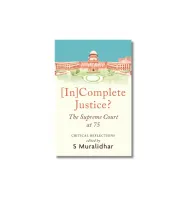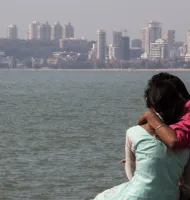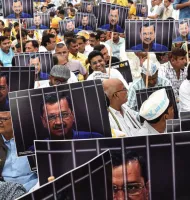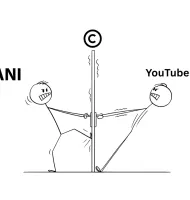Law
Support Independent Journalism:
Donate to 'The India Forum'
Our apologies for intruding. Please spare a couple of minutes.
The India Forum is a reader-supported publication. We are independent because your donations help us meet our costs.
We need your support to keep it going, and grow into a publication you will always want to read. Please donate to the Vichar Trust.
If you wish to make a one-time donation of Rs 500, Rs 2500, Rs 5000, Rs 10,000 or any other amount please click here: DONATE
You can now also use the QR code in the link above to make a quick one-time donation via UPI.
If you wish to make a monthly or annual donation of Rs 500 or more, please click here: DONATE
Donations enjoy tax exemption under Section 80G of the Income Tax Act.










